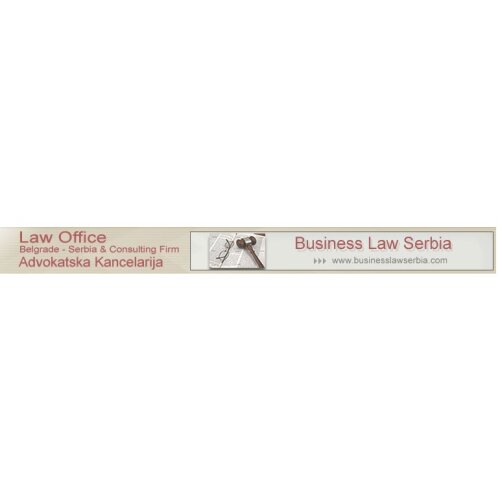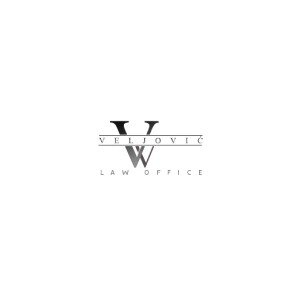Best New Business Formation Lawyers in Serbia
Share your needs with us, get contacted by law firms.
Free. Takes 2 min.
Or refine your search by selecting a city:
List of the best lawyers in Serbia
Legal guides written by Business Law office - Advokatska Kancelarija:
- Why Invest In Serbia
About New Business Formation Law in Serbia
New business formation in Serbia involves several legal steps and considerations that are essential to successfully establish and operate a business within the country. The legal framework in Serbia is designed to support diverse business entities such as limited liability companies (DOO), joint-stock companies (AD), sole proprietorships, and others. Starting a business in Serbia requires understanding registration processes, legal obligations, tax regulations, and compliance standards. The legal landscape is continually evolving to improve the ease of doing business and to align with international standards, making it crucial for entrepreneurs to stay informed.
Why You May Need a Lawyer
Engaging a lawyer can be advantageous in multiple stages of new business formation in Serbia. Common situations where legal assistance may be necessary include:
- Choosing the appropriate business entity form suitable for your goals and operations.
- Drafting and reviewing incorporation documents and agreements.
- Navigating complex tax and regulatory compliance requirements.
- Resolving disputes among business partners or with third parties.
- Understanding local employment laws and drafting employment contracts.
- Protecting intellectual property and handling trademarks or patents.
Local Laws Overview
Serbia’s legal framework for new business formation is governed by various laws and regulations, including the Law on Business Companies, the Law on Procedure of Registration in the Serbian Business Registers Agency, and the Law on Foreign Investments. Key aspects include:
- The necessity to register your business with the Serbian Business Registers Agency (SBRA).
- Specific minimum capital requirements for different types of business entities.
- Tax registration and VAT compliance, which are handled by the Tax Administration.
- Employment laws and obligations towards employees regarding contracts, benefits, and rights.
- Provisions related to foreign investment and repatriation of profits.
Frequently Asked Questions
What types of business structures are available in Serbia?
The main types of business structures in Serbia are limited liability companies (DOO), joint-stock companies (AD), general partnerships, limited partnerships, and sole proprietorships.
How long does it take to register a business in Serbia?
The registration process typically takes between 5 to 10 days, assuming all documentation is in order and fees are paid.
What is the minimum capital requirement for starting a limited liability company?
The minimum capital requirement for a limited liability company in Serbia is approximately 100 Serbian Dinars.
Do I need to be physically present in Serbia to start a business?
While physical presence is beneficial, it is not mandatory. You can authorize a local representative through a power of attorney to handle the registration process on your behalf.
Can foreigners own a business in Serbia?
Yes, foreign individuals and entities can wholly own and operate businesses in Serbia, subject to certain sector-specific restrictions.
What taxes are applicable to businesses in Serbia?
Businesses in Serbia are subject to corporate income tax, value-added tax (VAT), and various other local taxes and contributions, depending on business activities.
What is the role of the Serbian Business Registers Agency?
The Serbian Business Registers Agency (SBRA) manages the business registration process, maintaining a comprehensive business entity database for public access.
Are there specific regulations for hiring employees in Serbia?
Yes, you must comply with labor laws pertaining to employment contracts, working hours, wages, social security, and more.
How do I protect intellectual property in Serbia?
Intellectual property can be protected by registering patents, trademarks, and copyrights with the relevant Serbian authorities.
What are the common legal hurdles faced by new businesses in Serbia?
Common challenges include bureaucratic procedures, understanding complex tax systems, and ensuring compliance with local laws and regulations.
Additional Resources
For further assistance on new business formation in Serbia, consider consulting the following resources:
- Serbian Business Registers Agency (SBRA) for registration and information portal.
- The Serbian Chamber of Commerce for support and networking opportunities.
- The Ministry of Economy for insights on economic policies and incentives.
- Local law firms specializing in corporate law for personalized legal advice.
Next Steps
If you require further legal assistance in forming a new business in Serbia, consider taking the following steps:
- Conduct initial research to understand the business registration process and legal requirements.
- Contact a local lawyer or law firm specializing in business formation for a consultation.
- Gather necessary documents and details about your business vision and objectives.
- Schedule a meeting with your lawyer to discuss your business plan and seek legal guidance tailored to your needs.
By following this guide and utilizing professional legal resources, you can navigate the complexities of new business formation in Serbia with greater confidence and compliance.
Lawzana helps you find the best lawyers and law firms in Serbia through a curated and pre-screened list of qualified legal professionals. Our platform offers rankings and detailed profiles of attorneys and law firms, allowing you to compare based on practice areas, including New Business Formation, experience, and client feedback.
Each profile includes a description of the firm's areas of practice, client reviews, team members and partners, year of establishment, spoken languages, office locations, contact information, social media presence, and any published articles or resources. Most firms on our platform speak English and are experienced in both local and international legal matters.
Get a quote from top-rated law firms in Serbia — quickly, securely, and without unnecessary hassle.
Disclaimer:
The information provided on this page is for general informational purposes only and does not constitute legal advice. While we strive to ensure the accuracy and relevance of the content, legal information may change over time, and interpretations of the law can vary. You should always consult with a qualified legal professional for advice specific to your situation.
We disclaim all liability for actions taken or not taken based on the content of this page. If you believe any information is incorrect or outdated, please contact us, and we will review and update it where appropriate.
Browse new business formation law firms by city in Serbia
Refine your search by selecting a city.

















